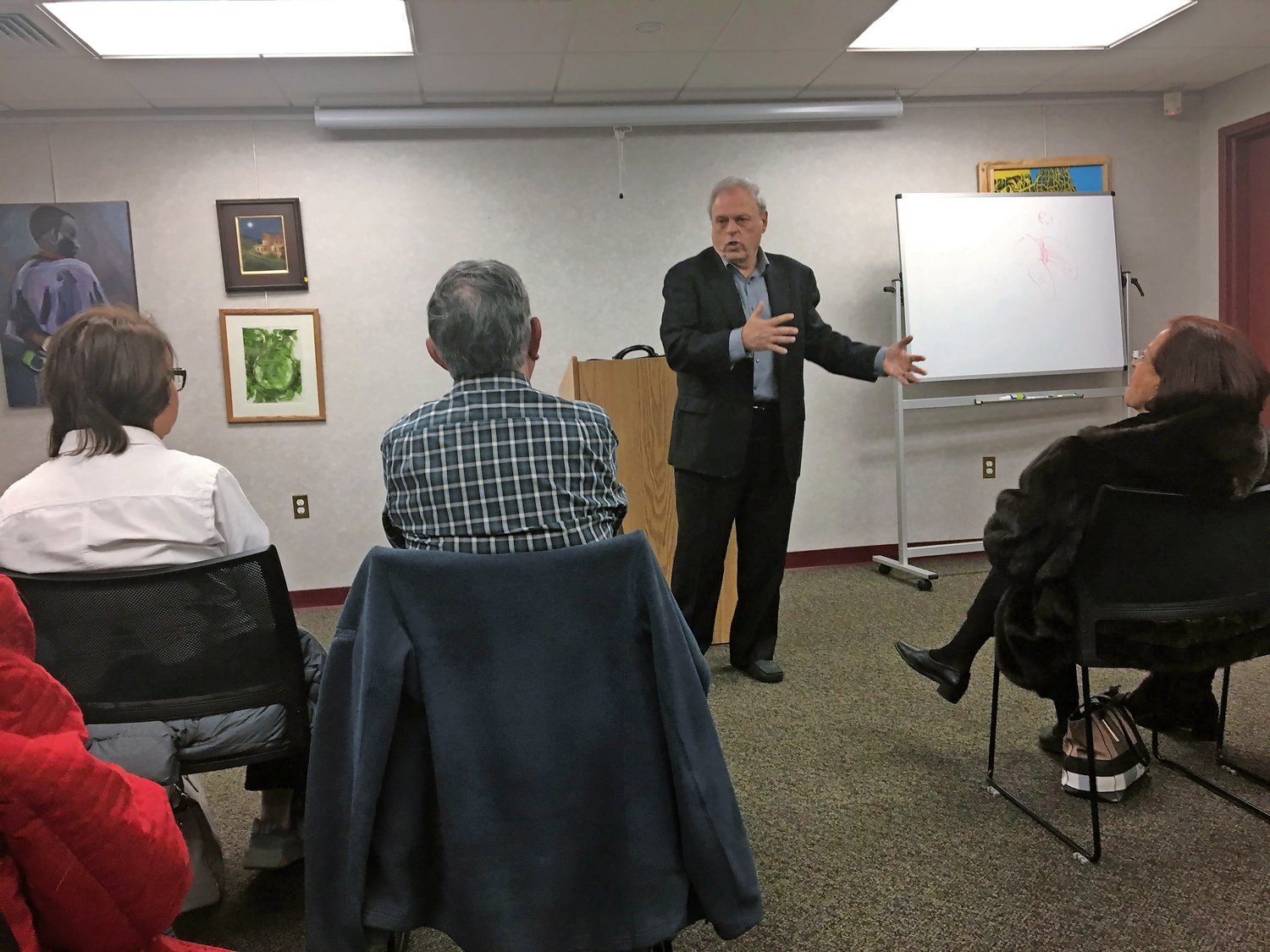Child of Holocaust survivors speaks at Rockville Centre Public Library
Dr. William Reszelbach, a child of Holocaust survivors, recalled a tough and unusual childhood growing up in Brooklyn. “What was it like to live with my mother and father?” he said. “Very difficult. It was very hard growing up in a situation like that.”
The chiropractor, former teacher and lecturer visited the Rockville Centre Public Library on Jan. 29, just two days after International Holocaust Remembrance Day, to share his family’s experiences to a group of about two-dozen residents.
Sarah Siegel, the library’s program coordinator, noted that the talk was one that residents requested. “It’s topical, and it’s important that we educate the community and offer programs on what they’d like to learn,” she said.
Reszelbach’s informal lecture flowed from talking about the life of Adolf Hitler to the lives of his parents under Hilter’s rule.
He first explained how Hitler went from a young boy who loved art and hated his abusive father to a manipulative dictator who founded the Nazi party, which invaded much of Europe and killed about 6 million Jewish people during the Holocaust.
In September 1939, Hitler’s forces invaded Poland, where Reszelbach’s father lived with his former wife and children. On his way to get a haircut for Rosh Hashanah, Nazis abducted him. He would go on to survive four concentration camps and meet Reszelbach’s mother at a displaced persons facility after the war in 1945. His mother survived by hiding in a Catholic neighbor’s home in Poland for about three years.
The couple moved to Brooklyn in 1949, and Reszelbach was born in 1950. Many other parents on the block also survived the horrific events of the Holocaust, he noted. “My father never laughed and he never cried,” Reszelbach explained, “because if you cried in Auschwitz, they beat you, and if you laughed, they killed you.”
He recalled memories of many people living in his home as a child, including his uncle and his father’s friend, both of whom survived the Holocaust. He also recalled his father saying to him, “You have a bed, you have food, you have a roof over your head – what else do you need?”
“But you need a lot more,” Reszelbach said.
Later in his lecture, Reszelbach remembered that he did, in fact, see his dad cry once. It was the day before Reszelbach’s wedding. They were at his “aufruf,” a ceremony in which the groom reads from the Torah in celebration of marriage, and his father was hysterically crying for two to three minutes, he said.
“I thought he was happy for me because he never had any emotion,” Reszelbach said. “But he says, ‘All my brothers, my sisters, all my relatives, all my friends … they’re all dead. There’s no one here to see my son get married.’”
Among Reszelbach’s personal stories, he spoke about the dangers of hate and anti-Semitism. “When the Nazis spoke of the Jews, they always spoke of extermination,” he said. “We exterminate rats and roaches. And that’s how Jews were portrayed.”

 50.0°,
Overcast
50.0°,
Overcast 




